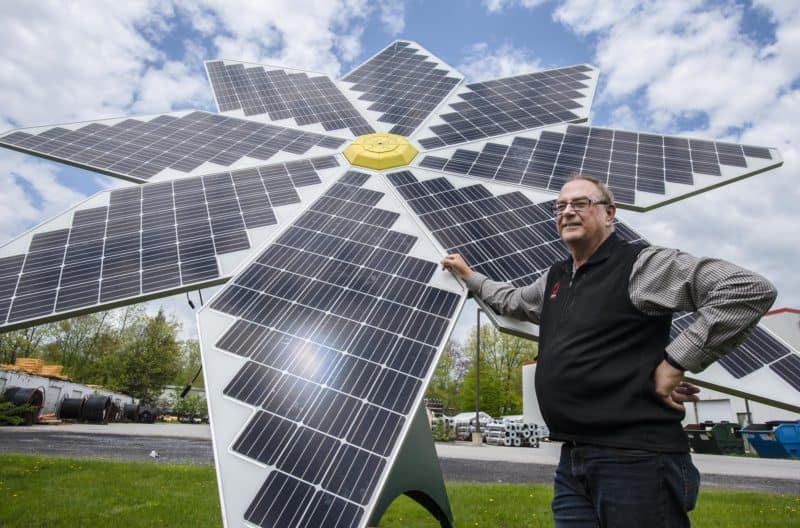New land use regulations under consideration with the South Burlington City Council would mandate the installation of solar photovoltaic systems in new commercial buildings and some new residential buildings.
As part of a new provision in the city’s commercial building energy standards, any new commercial building, or residential building with more than four or more stories, would be required to generate some of the building’s energy through solar. The amendment was passed unanimously by the city planning commission last month, and a public hearing will be held on the amendment during the council’s June meeting before a final vote.
The mandate is part of the work of the city’s energy committee, as well as the Climate Action Task Force, which has worked over the last several years to generate provisions to combat climate change on the municipal level.
“This was something that the energy committee had brought to the planning commission back in 2019, so it’s been a while that this has been in the works,” Paul Connor, the city’s planning and zoning director, said.
City regulations adopted about a year ago by the planning commission and city council already mandate that new buildings keep 40 percent of their roof “solar-ready,” or have a section of their roof designated and reserved for the future installation of a solar-energy system.
The new amendment would fill that in but “does not say that they need to be connected to the grid. That is the choice of the of the property owner,” Connor said. “It’s also not our authority to require somebody to connect to a public grid, because that’s the public utilities commission.”
Building owners can opt out if they have demonstrated that they have “accommodated renewable energy generation elsewhere” on their property, Connor said, such as ground-mounted solar or geothermal heat pumps.
While the amendment would only regulate new residential buildings with four or more stories, there is a draft residential energy code being worked through that would apply a similar standard to all new residential buildings. That’s anticipated to be released by the end of this year.
“This is really great. I support this 100 percent,” city councilor Tim Barritt said.
The amendment follows moves the city made late last year when it passed an ordinance to regulate heating systems and domestic water systems in all new buildings.
That ordinance, approved in November, required that new buildings permitted on or after Feb. 15 use a renewable energy source for their primary heating system and domestic water heating system.
Another move by the city, however — a charter change that would have allowed them to regulate thermal energy systems in existing residential and commercial buildings — was voted down 3-2. That charter change would have mimicked language passed by neighboring Burlington voters in 2021 that was signed into law by Gov. Phil Scott in April.
Two of the three no votes on the charter change — Thomas Chittenden and Matt Cota — are no longer on the council. Barritt also voted no.
The city has worked to regulate energy systems as part of the goals laid out in its Climate Action Plan, a roadmap to guide the city in reducing its carbon emissions through provisions on transportation and infrastructure.
The city officially passed its climate action plan in October, which recommended reducing South Burlington’s 2019 greenhouse gas emissions by 60 percent by 2030 through addressing the city’s biggest contributors — transportation, commercial and industrial building energy usage and residential energy usage.
By 2050, the city hopes to reduce emissions by 80 percent below 1990 levels.
The task force found that the heating of buildings accounts for about 34 percent of South Burlington’s greenhouse gas emissions, while on-road transportation accounts for 65 percent, and 1 percent caused by waste and agriculture.
The state, meanwhile, has set out an ambitious task in its Global Warming Solutions Act, passed in 2020, which legally binds the state to meet climate emission requirements by 2030 — opening itself up to litigation if it doesn’t.

